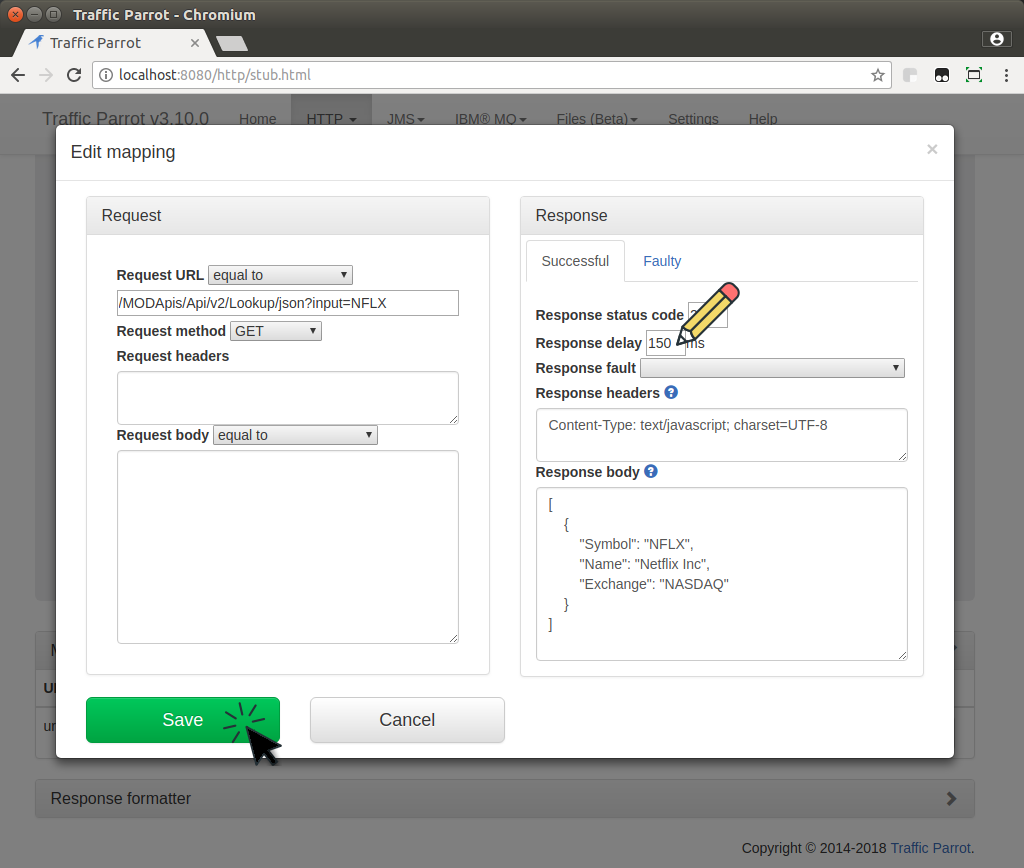There are several options available useful in performance testing.

...
"response": {
"status": 200,
"delayDistribution": {
"type": "lognormal",
"median": 70,
"sigma": 0.3
}
...
Performance profile allows for faster than usual responses in Traffic Parrot.
To enable the performance profile:If you are observing lower than expected performance please contact us.
Please keep in mind that Traffic Parrot performance depends on:Here is a Traffic Parrot 3.10.0 performance test result to give you a rough idea what you can expect.
The test was performed on a Heztner EX41S-SSD server:Both the test suite and Traffic Parrot were both running on the same server, so both using the same server resources but there was no network latency.
If these numbers are not enough for you, please contact us and we will suggest a setup that will allow for higher performance.| Protocol tested | Number of parallel users | Total number of transactions | Mappings | Total test duration | Transaction throughput | Average transaction time |
|---|---|---|---|---|---|---|
| HTTP | 1000 | 100,000 requests |
22 mappings total:
|
Test took 48s to run | Throughput for 1,000 concurrent users is 2,099t/s | Which results in an average of 0.5ms/t |
| HTTP | 100 | 100,000 requests |
22 mappings total:
|
Test took 29s to run | Throughput for 100 concurrent users is 3,428t/s | Which results in an average of 0.3ms/t |
| HTTP | 1000 | 100,000 requests |
102 mappings total:
|
Test took 136s to run | Throughput for 1,000 concurrent users is 734t/s | Which results in an average of 1.4ms/t |
| HTTP | 100 | 100,000 requests |
102 mappings total:
|
Test took 104s to run | Throughput for 100 concurrent users is 963t/s | Which results in an average of 1ms/t |
| JMS | 1000 | 300,000 messages (req, rsp, fake) |
52 mappings total:
|
Test took 378s to run | Throughput for 1,000 concurrent users is 792trans/s (264task/s) | Which results in an average of 1.2ms/trans (3.8ms/task) |
| JMS | 100 | 30,000 messages (req, rsp, fake) |
52 mappings total:
|
Test took 35s to run | Throughput for 100 concurrent users is 858trans/s (286task/s) | Which results in an average of 1.2ms/trans (3.5ms/task) |
This documentation is for an old version of Traffic Parrot. There is a more recent Traffic Parrot version available for download at trafficparrot.com